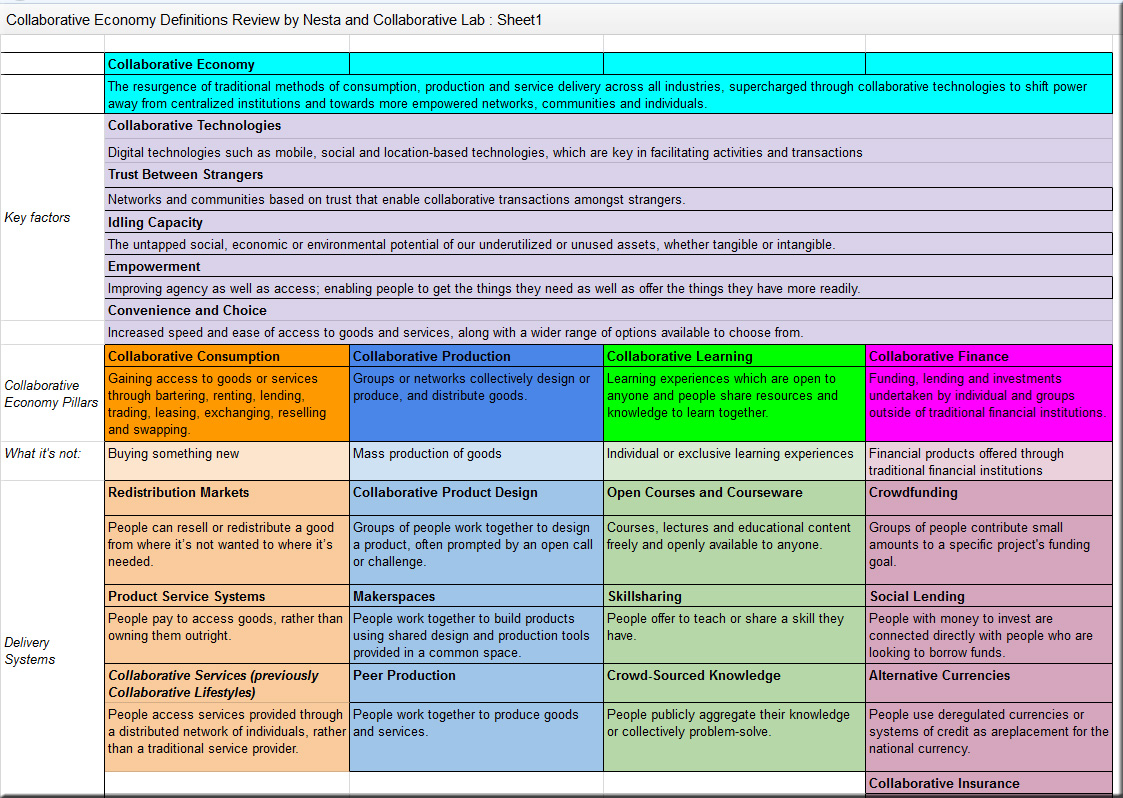From DSC:
First…a few items that stimulated some reflection:
Weekly Round-up: Collcons Must-Reads 23 May
We scour the internet to find the most interesting news on the collaborative consumption front. Here are our picks for the week:
Weekly Round Up: COLLCONS Must Reads – 9 MAY — from collaborativeconsumption.com
We scour the internet to find the most interesting news on the collaborative consumption front. Here are our picks for the week:
The Sharing Economy — from bbc.co.uk
Video duration: 30 minutes | First broadcast: Thursday 08 May 2014
Description:
Home swaps, driving your neighbour’s car, private car parking in your drive, even renting your neighbour’s clothes. They are all part of a new style of collaborative enterprise in which nearly everyone can join and (maybe) make money: the ‘shared economy’.
It’s breaking cover, growing fast and could be important. Perhaps the best known example is Airbnb but many more companies have sprung up allowing people to share their things and even their time. And now companies are trying to make money out of what makes all this sharing possible: trust.
But existing regulations and laws are set up for traditional businesses such as hotels and car hire companies, and that is causing problems. Peter Day investigates the opportunities and snags of the sharing economy and asks if it could become a big democratic movement.
From DSC:
After seeing those items, I began to wonder…
- Given the tough economic times many of us find ourselves in, will the sharing economy continue to pick up steam?
- If so, what are the implications for teaching and learning? How might such an environment impact what occurs within K-20? For example, will the concept of learning hubs take off (especially at the higher ed level)?
- Will such an environment lend itself to encouraging more communities of practice?
Hmmm….
Also see:
Addendum — related…?
Turning a MOOC into a network of schools collaborating — from pbs.org
Excerpt (emphasis DSC):
Students at the University of Texas at Austin and the University of Utah are currently engaged in a collaborative online class, Social Media Journalism, which combines the convenience of a MOOC with the engagement of a medium-sized lecture — and the completion rate is more than 95 percent. The engagement scales, too: students at both schools, 1,300 miles apart, are taking the class together, interacting with each other, viewing the same lesson modules and building a news aggregation service on various social media platforms. The difference is they get a personal instructor and smaller groups of familiar classmates. Our next step is to add more campuses and make this a new kind of MOOC — a network of schools working together with the same material but with individual instructors.
…
“It wasn’t about lectures or tests; it was about actually putting our work out there on social media and letting audience feedback be our guide. It was one of the few classes I’ve taken where I felt like my work was actually applicable toward real-life situations, instead of just being about a grade.”
…
Even if they don’t become social media editors, many have said they gained from having the knowledge of how to run an organization’s social channels.









